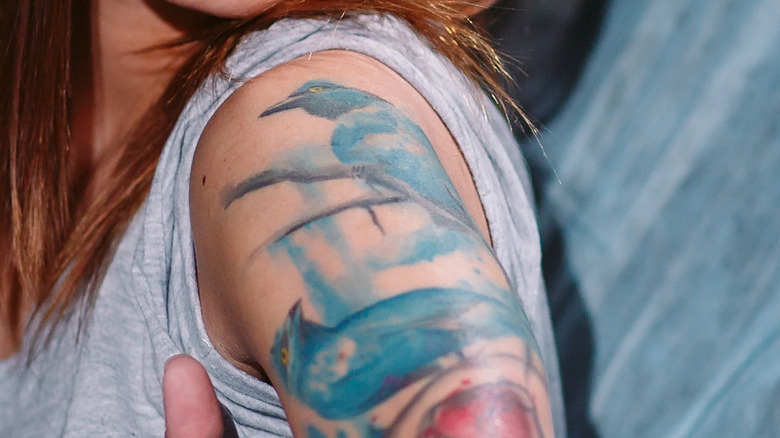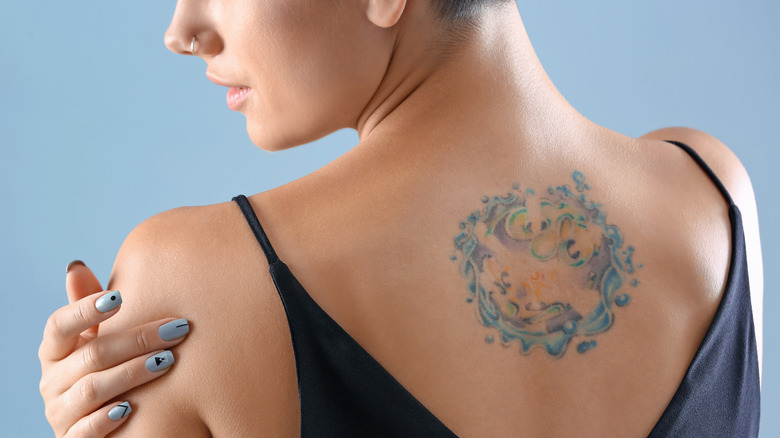How To Take Care Of A Watercolor Tattoo
Going against the traditional black line foundation and use of solid colors, watercolor tattoos rely heavily on gradual shading, visible brushstrokes, and even ink blots to create designs that could easily be mistaken for actual paint rather than ink. Light in color but intricately detailed in design, watercolor tattoos are becoming more and more popular, especially as minimalist additions to individual tattoo collections.
However, the lack of strong colors and a firm outline can often result in watercolor tattoos fading even faster than traditional ink. And as Rebels Market notes, future touch-ups could be an issue, as tattoo artists may struggle to match the initial shade and gradation of colors inked onto your skin.
So what can you do to keep your watercolor tattoo protected? Making sure it's placed in an area that doesn't get a lot of sun is a must, per Rebels Market, but there are plenty of other tips to guarantee a long-lasting tattoo.
Watercolor tattoos can fade faster than traditional tattoos
For any tattoo, protecting it from UV rays is essential, as UV light breaks down the pigment in the ink. Watercolor tattoos are especially susceptible to this due to the lack of saturation. Placement is the first line of defense, but you can also protect your tattoo by laying it on thick with the sunscreen. Authority Tattoos recommends a sunscreen with at least SPF 30+ containing zinc oxide "to block the most dangerous UV rays from zapping your tattoo." If it's not a scorching hot day, try to make a habit of covering your tattoo up with clothing or by staying in the shade (via Wild Tattoo Art).
In addition to keeping it out of the sun, keep up a good skin moisturizing routine from day one. For starters, it helps your tattoo heal correctly, but in the long term, well-moisturized skin can help keep your artwork looking bright and vibrant well into the future.
When picking a moisturizer, make sure you look for ones that are sensitive skin-friendly and fragrance-free to avoid any irritation on the area. You should also avoid using "soaps that contain harsh chemicals and cleansers that strip away skin's natural oils," per Rebels Market, as well as trying not to scrub the area, as too much friction can remove the pigment.

